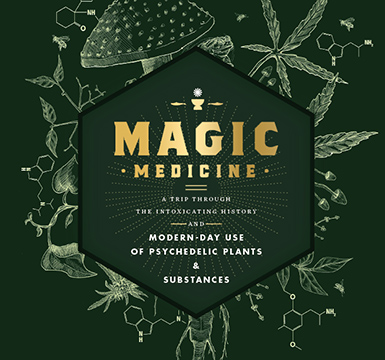
Beckley Foundation was founded by Amanda Feilding in 1998.
Amanda Feilding, director of the Beckley Foundation, has written a very encouraging article titled “At last, the edifice of drugs prohibition is starting to crumble.”
The Beckley Foundation is a non-profit organization that promotes drug policy reform and works to advance the scientific understanding of consciousness. Amanda Feilding and her colleagues have been on the front lines of drug policy and research since the organization’s inception in 1998.
She describes the Foundation’s perspective:
The Beckley Foundation has always advocated an evidence-based, health-oriented, harm-reducing, cost-effective approach that respects human rights. The mark of a successful drug policy should not be the amount of drugs intercepted or the number of people in jail, but rather the security and stability of the state’s institutions, and the health and wellbeing of its citizens.
Her article sounds very promising for advocates of sensible drug policy.
We are seeing a dramatic shift in favour of drug decriminalisation and unlocking the therapeutic potential of psychedelics.
The past two months have been an incredibly busy and productive time for global drug policy reform and scientific research into psychedelic drugs. Never in my 15 years as director of the Beckley Foundation have I seen such rapid progress in these complementary fields.

Amanda Feilding, director of the Beckley Foundation
Feilding goes on to describe to mention a variety of positive signs in international drug policy. First, she was asked by Guatemalan President Otto Pérez Molina to discuss a report commissioned by the Organization of American States called The Drug Problem in the Americas. The Beckley Foundation was also invited to advise his administration on drug policy issues.
The report and the meeting mark a paradigm shift by initiating intergovernmental dialogue that recognises the need for greater flexibility, pragmatism and respect for diverse opinions. As the OAS general secretary put it, “We are knocking on sensitive doors, but we need to examine drug policy.”
…At last, a major international body is recognising that the dominant prohibitionist approach to drug control laid down by the UN drug conventions of 1961, 1971 and 1988 must be reformed. There is near-unanimous agreement in Latin America that the “war on drugs” has failed, with leaders becoming increasingly vocal in their determination to push the reset button.
She discusses a number of other positive developments, including the support of other Latin American leaders, the legalization of recreational cannabis in Colorado and Washington states, and the recent popularity of events like San Francisco’s Psychedelic Science Conference. She ends with this:
Couldn’t all drug-related harms be more effectively reduced within a strictly regulated market than they can under the current criminalised regime, which is completely unregulated?
After 50 years of prohibition, drugs are cheaper and more available than ever before. The collateral damage – particularly to countries that produce the drugs and those through which they pass – is devastating. Surely the governments of the world can do a better job of limiting harms than the cartels, whose only motivation is profit, and who are the principal beneficiaries of the present approach?
Couldn’t have said it better myself. Just read the article, it’s excellent!
Liked this post? Subscribe to my RSS feed to get much more!











